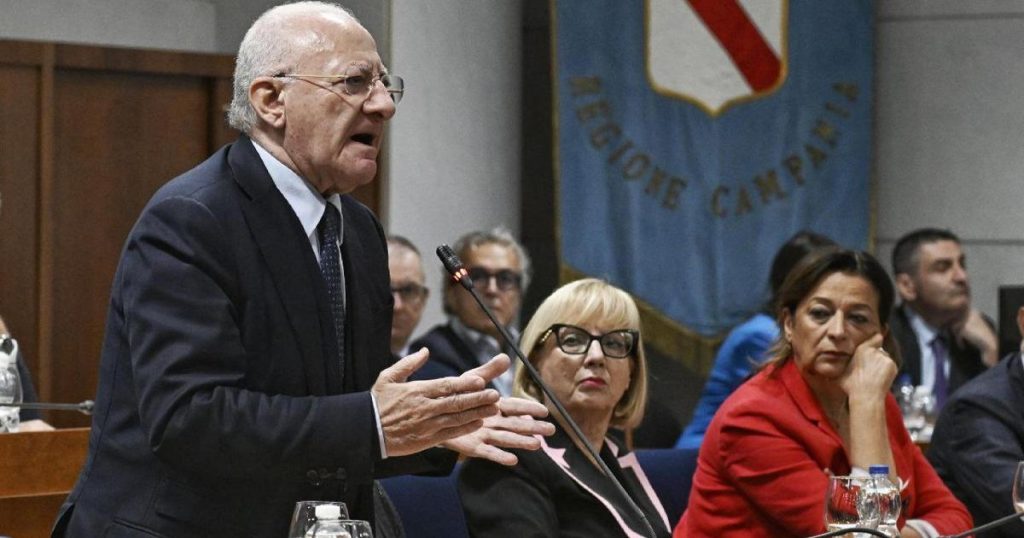The Campania regional law allowing for a third term for Vincenzo De Luca has been approved by the regional council with 33 in favor, 16 against, and one abstention. The proposal was supported by the center-left majority groups and independent councilor Valeria Ciarambino, while the opposition came from the center-right, the 5-Star Movement, independent councilor Maria Muscarà, and an abstention from councilor Bruna Fiola. The law stipulates that the President of the Regional Council cannot be immediately re-elected after serving two consecutive terms, with the counting of terms starting from the current term at the time of the law’s enactment.
Following the approval, there was a light-hearted exchange between the President of the Campania Region and a group of regional councilors, with jokes and anecdotes shared. Vice Minister for Foreign Affairs and International Cooperation Edmondo Cirielli commented on the legality of the law, predicting that the government would challenge it. He described the situation as part of a larger political drama involving De Luca and the Democratic Party. Councilor Muscarà criticized the law as a “legal hoax” and accused it of serving to maintain consolidated power in Campania rather than benefiting the citizens.
President of the Democratic Party Stefano Bonaccini expressed concerns over the third term proposal for Vincenzo De Luca, emphasizing the importance of respecting existing laws. He highlighted upcoming elections in Umbria and Emilia Romagna and stated that while he personally would have changed the law on term limits, it must be respected. Bonaccini acknowledged the legitimate passing of the law in Campania but warned of the serious risk of legal challenge, with the ultimate determination of its constitutionality lying with the Constitutional Court. He suggested that a decision on the next President of the Campania Region should be made in due time, considering the current government’s performance.
The regional law allowing for a potential third term for Vincenzo De Luca has sparked controversy and criticism from various political figures. Opponents have labeled it a legal deception intended to consolidate power rather than serve the interests of the citizens. The ongoing debate over the law’s legitimacy and potential legal challenges underscores the complex dynamics at play in regional politics. The differing perspectives on the law highlight the importance of upholding legal norms and democratic principles in the face of political maneuvering.
As the situation unfolds, it remains to be seen how the third term proposal for Vincenzo De Luca will be ultimately resolved. The legal and political implications of the law will likely be subject to further scrutiny and debate, with potential legal challenges looming on the horizon. The outcome of this issue will have significant implications for the future governance of the Campania Region and may impact broader discussions around term limits and democratic processes in Italy. The controversy surrounding the law highlights the tensions and complexities inherent in regional politics and underscores the importance of transparency and accountability in decision-making processes.















